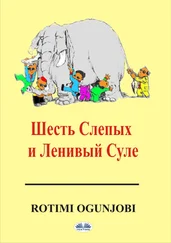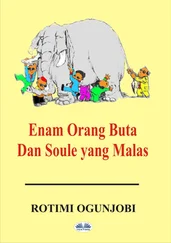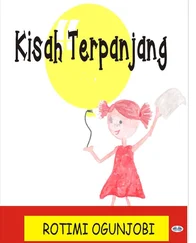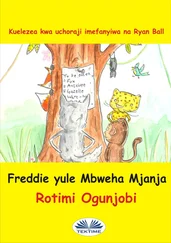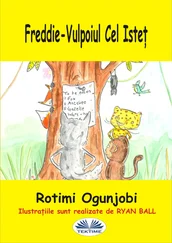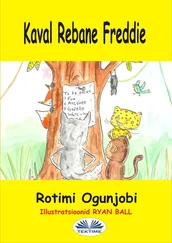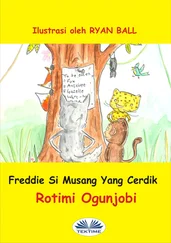Rotimi Ogunjobi
Yoruba Folk Tales
YORUBA FOLK TALES
by
Rotimi Ogunjobi
© 2014 Rotimi Ogunjobi
All rights reserved. No part of this book may be used or reproduced in any manner whatsoever without written permission, except in the case of brief quotations embodied in critical articles or reviews.
All the stories in this book were retold from traditional folk tales of the Yoruba tribe with origin in West Africa.
Purchase and Permissions:
Xceedia (Media and Publishing) Ltd
mail@xceedia.co.uk
Where do stories come from?
These stories come from a time when animals could speak like men, and when men could understand them. They come from the time when minds were still pure and all things were possible.
Folk tales generally derive from the daily experience of a people, their environment, their predominant occupations, their aspirations and of course their moral rules. They can be funny, they can be fascinating, they can be ridiculous, they can be thought-provoking, they can be quite pedantic, but the constant purpose remained to serve as illustrations to teach young important lessons about wholesome values. The Yoruba folk tales in this book have the have the same primary qualities.
Yoruba is a quite complex language; it is tonal and a word can have several meanings depending on how it is pronounced. In the same way a sentence may also have multiple interpretations. It is the perfect language for poetry and for storytelling. Folk tales in Yoruba derive from experience in proximity to the rain forest. Animals and farms unavoidably play major roles due to the predominant occupation as farmers and hunters at the time when these tales came alive. Certain animals and indeed objects have become stamped with indelible characters which follow them through the world of storytelling. The imageries in Yoruba folk tales can be quite striking and are often astonishing .The tales live and breathe and sometimes walk into each other and around at night when all have gone to sleep. But in the end there is always a moral lesson that was learned.
All these stories are derived from Yoruba folklore. Some are as old as the art of storytelling itself, some are relatively newer, some I have been gleaned from places that have become lost to memory, and some I have made up entirely on my own . In all cases I have attempted to retell the stories in my own way, and in the way of a Yoruba storyteller.
– Rotimi Ogunjobi
THE LEOPARD AND THE TRAVELER
The route of a traveler took him through a forest, and as he got close to a nearby village he found a leopard trapped in a steel cage. The trap had been set by the villagers and the cage had been built in such a way that once the leopard got in, it would be unable to get out again unless the cage was opened from outside.
When Leopard saw the traveler he pleaded with him to open the cage but the traveler refused. Leopard pleaded and pleaded, and still the traveler would not open the cage.
“What is it that I have done to you? Do you not know that I could one day be of use to you? It is true that everybody calls me a dangerous animal, but I know that this is not true. You know how wicked human beings are and how they hate one another, and speak evil one against the other. If you live with me for only three days, you will never want to leave my home as you will see how pleasant I really am. Certainly, if you go away and you leave me in this cage, someone else will soon come along in a moment to release me. You should then pray that our path never crosses again, but it certainly will.”
And when the man heard this he said to Leopard:
“What you say is true; I even understand the bits that you have not said. However, I cannot help being afraid. If I free you, and then you attack me and tear me to pieces, how wise would I have been?
"I give my word that I will do you no harm. But hurry because time is precious” Leopard sad to him.
Leopard was so persuasive; and so the traveler went to the cage and opened the door. But no sooner did Leopard come out of the cage that he held the man by the neck and made to kill him; but the traveler pleaded with Leopard.
“Be patient with me,” the man said. “Let us bring this matter to be judged by five persons along the way, and then you should abide by their judgment.”
Leopard grudgingly agreed, and together they walked on along the forest path. They soon met a goat, and the traveler told goat what had happened. He told how he had seen Leopard in a cage, how Leopard had pleaded to be released, and how against wise judgment he had mercy on Leopard only to be now at the risk of becoming Leopard’s dinner. After he had finished, Goat turned to Leopard and said:
These human beings are wicked and untruthful, ever since my owner bought me; I have had nothing but trouble. When I have kids I care for them all by myself. And when they are grown up, he seizes them and sells them away. All I get is a few unripe bananas in the morning, and then I have to go out to find leaves to eat. I rarely get any yams or corn meal. And when he”s eaten and has drunk some wine, he takes a stick to me and beats me soundly, all for his pleasure. Friend, human beings are no good at all, Leopard must surely eat this one.” And after Goat had said this Leopard made to kill the traveler but the man quickly reminded him of their agreement.
“Five persons must listen to this, we’ve seen only one so far” he said.
And so they continued on through the forest path. They soon met a horse, and again the traveler told Horse what had happened, while Leopard waited impatiently and watched.
"Human beings are deceitful", Horse said. “They flatter you with kind words but inside their thoughts are wicked. I understand your predicament and I sympathise with you, but my experience with human beings has been quite unhappy. Everyone knows how gentle and humble I am, but see what they do to me even because of this. They climb upon my back and I carry them everywhere they want, and even when I am tired and cannot run very fast anymore I am prodded in the side with sharp spikes, and whipped until I am sprinting again as if for my life. But sometimes when the suffering becomes unbearable, I throw them from my back in anger, and then they begin to say Horse has without reason turned against them. I hate all human beings, and I want Leopard to eat you".
On hearing this Leopard again prepared to make a meal of traveler, but the man held up his hand.
“Three more to go,” he said to Leopard. Soon they came to an orange tree and again the traveler told the tree his tale of woe. And when he was done, the tree said to him:
“Very nice of you to tell me all this, but I can never say anything in support of a human being; they are all so arrogant. Here I stand everyday all by myself, doing nobody any harm, and when the sun is hot they come to sit at my foot and enjoy the peace around me. But when my fruits ripen instead of them to climb gently up my branches and pick the fruits, the children throw sticks and stones at my branches and I lose so many leaves and my trunks became scarred. I think human beings are even wicked than monkeys and surely Leopard must make an example of you, and eat you today.”
Again Leopard bared his fangs, and raised his paws to tear the traveler apart; but again he also very quickly reminded:
Two more person to go”
so they went on along the forest path once more and soon they came to a dog and as before the traveler told the dog his sorry tale. And again the dog advised that Leopard should not fail to make the traveler its dinner on that very day.
Читать дальше




